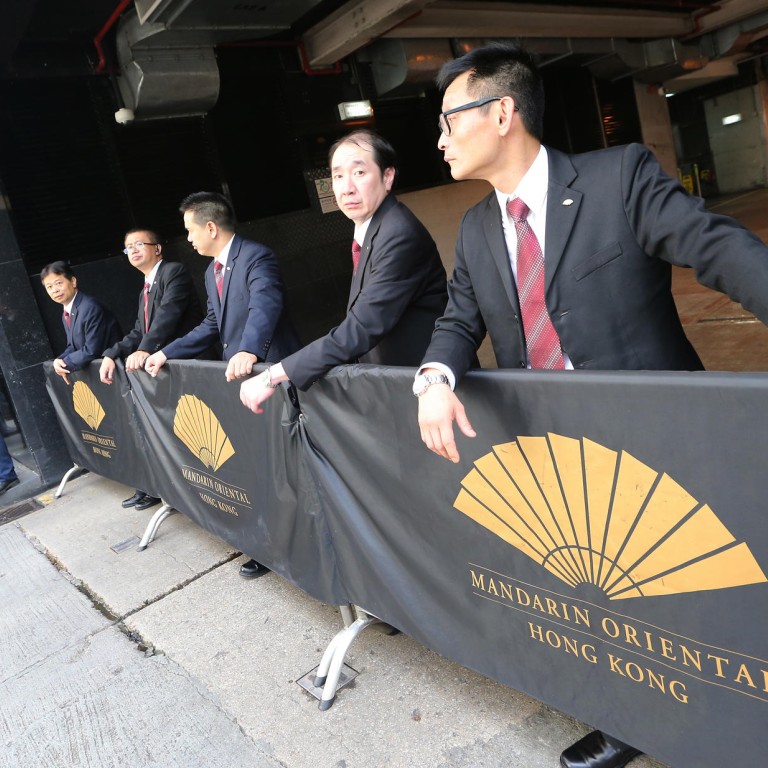
Sit-in participants endure arrests, little sleep for their cause
As Central steeled itself for another morning rush hour, dozens of people at a peaceful overnight sit-in on Chater Road were ready to get out of the way of office workers.
As Central steeled itself for another morning rush hour, dozens of people at a peaceful overnight sit-in on Chater Road were ready to get out of the way of office workers.
They cheered in triumph for achieving their goal of occupying the street from midnight to 8am, with bystanders applauding their efforts from outside the police cordoned-off area.
Police officers had been trying since 1.30am to arrest and remove participants of the protest held by the Hong Kong Federation of Students. They refused to let the remaining protesters leave on their own after the 8am mark and instead escorted them to nearby police buses.
Sharing the sentiments of many, social worker Pearl Chan, 40, said she was galvanised into action by a white paper declaring Beijing's comprehensive jurisdiction over Hong Kong and pro-establishment lawmaker Ng Leung-sing's alleged breach of the Legislative Council's rules of procedure to pass funding for the government's development of the New Territories
The city had reached a critical point, Chan said yesterday. "Today, I sacrifice my own time at night, and I think it is worth it even though I have to go to work in the morning," she said. "Every year, hundreds of thousands march on July 1, but the government seems to have heard none of our demands."
Just before midnight on Tuesday, police officers had queued up near Exchange Square for a cup of herbal tea that, according to Chinese medicine, could "clear heat from the body", while waiting to move into action. The Hong Kong Federation of Students had not sought police approval for its rally, and at 1.30 in the morning loudspeakers began blasting out messages to leave the area.
The noise was equalled by choruses of boos and wails as officers went about clearing the site. It was hard work - protesters went limp, each taking up to five officers to be carried away. Some police officers' uniforms were soaked as beads of sweat dripped off their chins.
Bystanders and the media watched their every move. Some onlookers would call out whenever an officer appeared to have used too much force.
A fight broke out in the Chater Garden sitting-out area when an alleged Beijing-loyalist reportedly slapped a protester in the face. A mob surrounded the man until officers arrived to escort him to a police van. The group gave chase, berating the officers for being "sympathetic" to him. An officer threatened to use pepper spray unless they dispersed.
More than five hours into the sit-in and multiple replenishments of officers later, a large number of protesters remained.
Many renewed their resolve to take part in a planned blockade of Central as a last resort to force the Hong Kong government to offer a satisfactory plan for universal suffrage in the 2017 poll for the city's next chief executive.
Academy of Performing Arts drama student Samantha Tse, 26, said she would "definitely join Occupy Central". She said she believed the campaign would be rational and peaceful.
"We are now at a crossroads," University of Hong Kong student Kammy Liu, 19, said.
"After witnessing what 689 [Chief Executive Leung Chun-ying] and [Legco Finance Committee chairman] Ng have done to Hong Kong, we will soon pass the point of no return if we do not have civil nomination [in the 2017 election] and there is no solution within the establishment."
